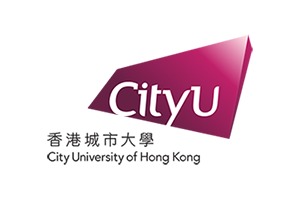Please note that all sessions are scheduled in Hong Kong time (GMT + 8 hours)
You need to join the sessions using Zoom and passcodes will be sent to you through emails.
(Download the Zoom user guide)
(Download the Zoom virtual background)
19 July 2022
20 July 2022
21 July 2022
22 July 2022
| 10:00 - 11:00 |
Keynote 4:
The Joyous Paradox of Making the Multitude the Norm:
Blended Learning as a Reconstructive Act
Dr Stephanie Moore
Zoom Link |
| 11:00 - 11:30 |
Closing Remarks and Award Presentation
Zoom Link |
Paper Session 1 - Ubiquitous Learning and Flexible Learning (Chair: Billy T.M. Wong)
The Publication Patterns and Research Issues of Hybrid Learning: A Literature Review
Billy T.M. Wong, Kam Cheong Li, Hon Tung Chan, and Simon K.S. Cheung
Research on Personalized Service Path of Learning Resources by Data Driven
Haonan Wang and Ziqing Gao
Hybrid Teaching Management and Evaluation Based on Online Open Public Elective Courses
Yanyan Liu, Dawei Liu, Quanwen Liu, Wei Wang, Qilin Wu, and Lin Wang
Teaching Chemical Engineering Unit Operations Using Blended Learning Techniques and Process Simulation
Jin Sun, Shikui Wu, Li Wang, Xiuhong Meng, Zhongfeng Fan, Hui Chen, Rujin Zhou, and Xingye Zeng
Innovative Research and Practice of Goal-Problem-Oriented Blended Learning
Xiuhong Meng, Linhai Duan, Huibo Qin, and Rujin Zhou
Designing Tangible Tools to Engage Silent Students in Group Discussion
Yanhong Li, Nadine Bachl, Michelle Dutoit, Thomas Weber, Sven Mayer, and Heinrich Hussmann
Paper Session 2 - Learning Analytics I (Chair: Kwan Keung Ng)
A Review of Intelligent Application of Educational Knowledge Graph from the Perspective of Artificial Intelligence
Linjing Wu, Fengjiao Tu, Qingtang Liu, Xinqian Ma, Xiangcheng Jia, and Yu Gao
Design and Application of Piano Micro-Teaching Mode Under the Environment of "Internet +"
Minsheng Fan, Jing Liu, and Tiantian An
A Corpus-Assisted Analysis of Learning Strategies in Curriculum-Based English Textbooks in China
Yansui Chen and Manfei Xu
Embodiment and Cultivation of Media Literacy in the Business English Teaching Context: A Corpus-Driven Study on Textbooks
Yin Feng, Shuquan Li, Jingru Huang, and Manfei Xu
Paper Session 3 - E-learning and Online Learning I (Chair: Lap-Kei Lee)
A Study on the Relationship Between Digital Citizenship and Information Literacy Among Middle School Students
Qian Wang, Hui Ma, and Shun Xu
Exploring Influential Factors on Students' E-learning in Chinese Higher Education
Yuting Zhang, Donnie Adams, and Kenny Cheah Soon Lee
Education Effectiveness Comparison Between Face to Face Lectures and Online Lectures
Noriko Hanakawa and Masaki Obana
Online Learning of Basics of Graph Theory
Milan Pokorný
Understanding K12 Teachers' Continuance Intention and Behavior Toward Online Learning Communities
Yongpeng Cui, Jixin Wang, Quan Zhou, and Yingying Lin
Exploring the Continuous Learning Willingness Under the Risk of Data Breach in Online Learning System: A Fuzzy-Set QCA Approach
Yuwei Jiang, Qingtang Liu, Shufan Yu, Jingjing Ma, and Linjing Wu
Paper Session 4 - E-learning and Online Learning II (Chair: Shaofu Li)
Emerging Issues Regarding Online Learning During the COVID-19 Pandemic: A Teacher's Perspective
Terumi Miyazoe
Research on the Improvement of MOOC-Based Self-Organized Online Teaching and Research Participation Degree for Primary and Secondary School Teachers
Wenjing Luo, Youru Xie, Wan Xia, and Yanting Zeng
Progress Tracking and Online Learning Assisted by Social Media Tools: A Case Study of Teaching Architectural Design
Shaofu Li, Kwan-Keung Ng, and Lap-Kei Lee
Evaluation of a Web-based Teaching Platform with EduTools and Adapted Indicators
Kunyan Li and Kebin Huang
Discussion on the Basic Model of Intelligent Technology to Enable the Transformation of Learning Methods
Zhenhua Liu, Minsheng Fan, and Binli Wang
Ideological and Political Blending Teaching Reform of Petrochemical Technology
Li Wang, Guangkun Yi, Wen Fu, Shufeng Shan, Sun Jin, and Rujin Zhou
Task-Driven Online and Offline Blended Teaching Practice Based on ARCS Model
Fang Lu, Bo Li, Hongji Zhan, Guang Liu, Xiaolin Ma, and Guang Yu
Paper Session 5 - Computer Supported Collaborative Learning (Chair: Kai Pan Mark)
A Research on Learning Community in Robotics Education in High Schools Under the Grounded Theory
Qing Su, Wenlan Zhang, and Yuxuan Feng
Using Student Generated Videos to Facilitate Discussion for Collaborative Flipped Classrooms
Gary Wai Chung Wong, Paulina Pui Yun Wong, Ray Ting Chun Wang, Daniel Jiandong Shen, and Haoran Xie
A PageRank-based Collaborative Design Team Member Influence Study
Mengjia Xue and Yang Ji
Group Awareness and Group Awareness Tools in Computer-Supported Collaborative Learning: A Literature Review
Dengkang Chen, Yi Zhang, and Yuru Lin
Research on the Influence of Collaborative Mind Mapping Strategy in Smart Classroom on College Students' Scientific Research Problem-Solving Ability and Learning Anxiety
Hesiqi Bin, Yi Zhang, Zhifang Zhu, Yuru Lin, Yuanyuan Zhan, and Jingsi Ma
Designing and Applying an Argument-Driven Inquiry Instructional Model in the Teaching of History of Science for Pre-Service Science Teachers
Zhixia Zheng, Xinman Li, and Taotao Long
Paper Session 6 - Learning Analytics II (Chair: Yan Keung Hui)
Analysis on the Characteristics of STEM Teaching Cases
Xinru Yang, Yidong Guo, Xinxin Qiu, Xiunan Jin, Xianfei Luo, and Yunxiang Zheng
The Effect of Different Feedback Strategy on Learning Outcome in Micro-Video Course Learning
Qingtang Liu, Shiyao Gou, Jingjing Ma, Shufan Yu, and Yating Song
Autonomy Strengthens the Predictive Power of Involvement Load Hypothesis on Students' Productive Vocabulary Performance
Guoyuhui Huang
Reciprocal Effects of Teacher Autonomy Support and Student Academic Engagement in Blended Synchronous Learning Environment: A Two-Wave Longitudinal Study
Wei Li, Anni Chen, Zunxian Liu, Sanwei Guo, and Weidong Fu
How to Implement Efficient Blended Learning: The Effects of Teacher Support and Task Difficulty
Anni Chen, Wei Li, Lisheng Chen, Jiu Wei, and Weidong Fu
Research on National Common Language Learning Intervention for Young Children in Western Ethnic Areas Supported by AR Technology
Qingli Wang, Minsheng Fan, and Min An
Algorithm for Counting the Number of Students in Class Based on Mask-RCNN Optimization
Jinbin Li and Jianguo Xie
Paper Session 7 - Institutional Policies and Strategies (Chair: Oliver Au)
Teachers' Technological Pedagogical Content Knowledge for Integrative Science, Technology, Engineering, and Mathematics Education
Ma. Jenina N. Nalipay, Morris Siu-Yung Jong, Thomas K.F. Chiu, and Ching-Sing Chai
Factors Influencing Teachers' Intention to Continue Using Mind Mapping
Shuang Yu, Linjing Wu, Qingtang Liu, Xinqian Ma, and Junmin Ye
Research on the Influence of Parental Support on College Students' Self-Regulation Ability
Can Zuo, Xuan Wang, Min Zou, Han Wang, and Daiqi Wang
The Effects of Self-Regulated Learning on College Students' Learning Outcomes: A Literature Review
Yinghui Shi, Kexin Jia, Ling Chen, Jiayi Duan, and Harrison Hao Yang
Co-Designing Artificial Intelligence Curriculum for Secondary Schools: A Grounded Theory of Teachers' Experience
King Woon Yau, Ching Sing Chai, Thomas K. F. Chiu, Helen Meng, Irwin King, Savio Wai-Ho Wong, and Yeung Yam
Discussion on New Engineering Talent Training System of Petrochemical Emergency Based on Multi-Integration
Jinlong Men, Mei Liu, Fangchao Kang, and Fulei Zhao
Exploration on the Teaching Practice of "Three Combinations and Four Steps" Based on Goal-Problem Orientation
Cuihong Yao, Qinxiu Zhang, Yong Wan, and Mustapha Mukhtar
Paper Session 8 - Smart Learning Environment (Chair: Yinghui Shi)
Requirements and Prototypical Implementation of a Study Planning Assistant in CS Programs
Tobias Hirmer, Jana Etschmann, and Andreas Henrich
Empowering Future Education: Learning in the Edu-Metaverse
Jinping Zhong and Yunxiang Zheng
The Effects of Teaching Presence and Learning Environment Preference on College Students' Deep Learning in the Rotational Synchronous Teaching Model
Di Gong, Harrison Hao Yang, Di Wu, and Jinjun Dai
Investigating Human Side Factors on Middle School Students' Self-Regulated Learning in the Smart Classroom Environment
Yinghui Shi, Ling Chen, Kexin Jia, Zhuo Qu, and Harrison Hao Yang
Systematic Design and Mode Construction of Mixed Teaching From the Perspective of Deep learning
Bo Qu and Wenmin Zhang
Paper Session 9 - Gamification and Virtual Reality for Education (Chair: Xiaodong Wei)
Exploring Primary School Students' Academic Emotions and Learning Achievement in an Immersive Virtual Reality Science Classroom
Ruixue Liu, Jian Kang, Lei Wang, and Minsheng Fan
Interior Design Studio in the New Normal Era: A Virtual Reality Case Study
Hoa Vo
Developing a Digital Game for Assessing Primary and Secondary Students' Information Literacy Based on Evidence-Centered Game Design
Sha Zhu, Jie Bai, Zhang Ming, Huan Li, and Harrison Hao Yang
An Experimental Inquiry into Early Childhood Language Learning Based on Game Learning
Xiaodong Wei and Ji Wang
Research on the Design and Effect of Early Childhood Education Games Supported by AR Technology
Shiyan He, Minsheng Fan, and Zhenhua Liu
Experimental Research and Analysis of Immersive Virtual Reality Technology on Children's Language Teaching
Xiaodong Wei and Mingkai Zhang
The Golden Ratio of Instructive Content to Entertaining Content in Mobile Augmented Reality Games
Xiaodong Wei and Pengfei Xi
Paper Session 10 - Instructional Technology (Chair: Richard Chen Li)
Implementing and Testing an Interactive Educational Story Mobile App
Mamoun Nawahdah and Hadeel Ehmouda
iTutor: Promoting AI Guided Knowledge Interaction in Online Learning
Jun Xiao and Qingchun Bai
Teaching the Course of Petroleum Refinery Engineering Based on Goal Problem-Oriented Mode and Blended Learning Techniques
Jin Sun, Shikui Wu, Li Wang, Yi Su, Xiaomi Zhang, Hui Chen, Rujin Zhou, and Ming Zhang
The Influence of AR Storybook on Preschool Children's Autonomous Reading Ability
Guodong Yang, Yayi Chen, Yuanyuan Chen, and Xiaodong Wei
Intelligent Technology Empowering the Design and Implementation of Primary School English Project-Based Learning
Youru Xie, Yachun Liu, and Caoyin Li
The Development of Students' Computational Thinking Practices in AI Course Using the Game-based Learning: A Case Study
Jingsi Ma, Yi Zhang, Hesiqi Bin, Kang Wang, Jinfang Liu, and Hanrui Gao






